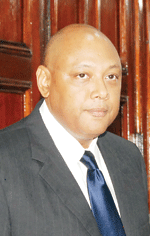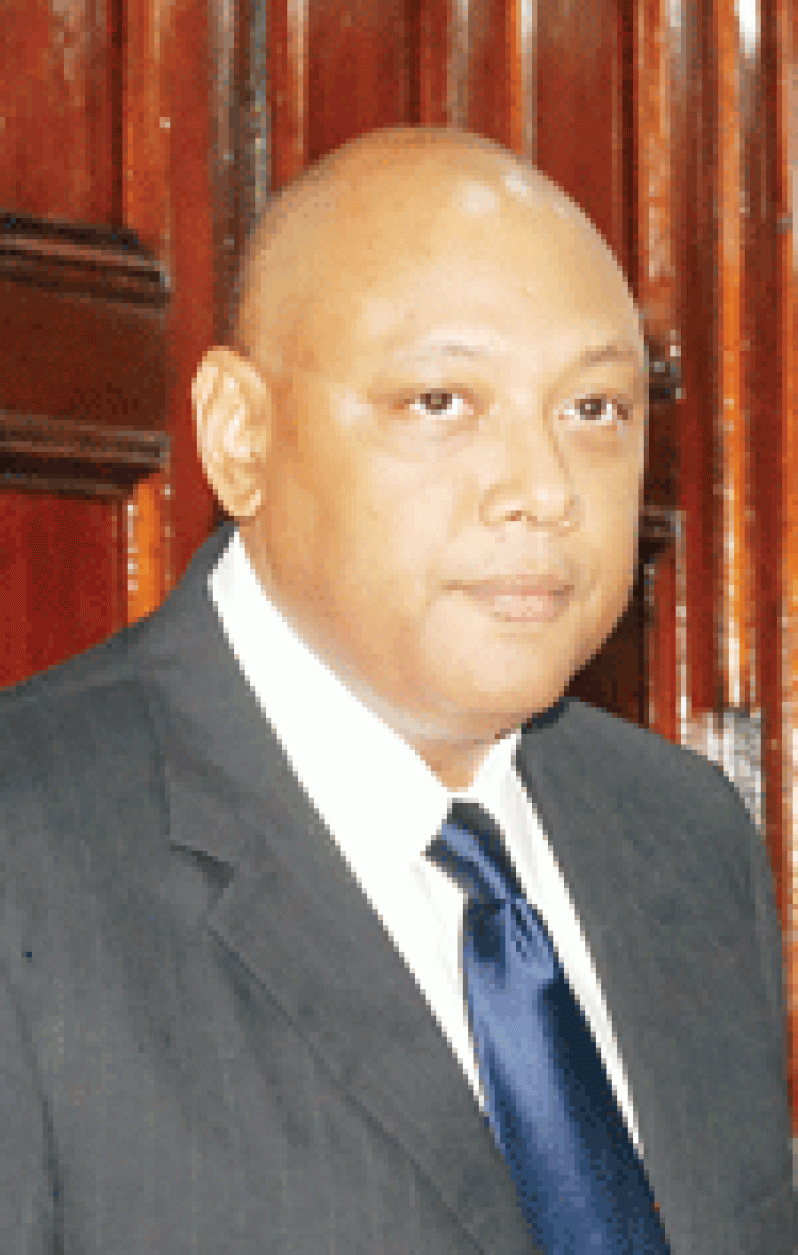— deems it fit and proper for presentation in the National Assembly
SPEAKER of the National Assembly, Raphael Trotman yesterday rejected a request by A Partnership For National Unity (APNU) to disallow the submission of Financial Paper No. 9/2011-Supplementary Estimates (Current and Capital) totalling $79,619,478, which are advances made from the Contingencies Fund for the period 25th October to 31st December, 2011, to be submitted to the National Assembly for a second time.  Trotman had received a letter from APNU’s shadow Finance Minister, Carl Greenidge requesting that he deem the resubmission of Financial Paper N0.9 as inadmissible to be placed on the order paper.
Trotman had received a letter from APNU’s shadow Finance Minister, Carl Greenidge requesting that he deem the resubmission of Financial Paper N0.9 as inadmissible to be placed on the order paper.
However, the Speaker, handing down his findings on the request yesterday afternoon, stated that Appropriation Bills concern government appropriation, expenditure or taxation. These are the bills that provide the executive with the financial means to govern. He added that the National Assembly’s explicit approval has to be given to raise taxes or spend monies. “It is through the process of the Appropriation Bill that this process is regulated,” Trotman explained.
In keeping with Article 217, which states that no monies shall be withdrawn from the consolidated funds except: to meet the expenditure that is charged upon the fund by the Constitution, or by any act of Parliament, or where the issue of those moneys has been authorised by an Appropriation Act, or where the issue of those moneys has been authorised under Article 219.
According to the Speaker, “Parliament, in its wisdom, has created legislation in the Financial Management and Accountability Act No. 20 of 2003, to give effect to the constitutional provision, and by extension, the Parliamentary Standing Orders from 71-79 (inclusive), are the subsidiary legislation that provides or the procedures that must be utilised by the executive and the National Assembly to manage the business of raising taxes and spending moneys.”
The Speaker said that Standing Orders 26 (e) and 69 have been invoked by the former Finance Minister Greenidge to support his argument that the sum sought in financial paper No.9 should be disallowed.
However, Trotman asked to beg to differ with Greenidge’s contention, noting that the standing orders that regulate entirely the business of requests to draw to the consolidated fund are contained in standing order 71-79.
“The standing orders referred to 26 (e) and 69 are, in my opinion, meant to regulate generally the business of the conduct of the special nature of financial bills, and the presence of special procedures set out for them, the other standing orders, do not automatically apply mutais mutandis,” Trotman further explained.
The Speaker stated that section 24 of the Financial Management Accountability Act (FMMA) establishes the manner in which the minister may introduce a supplementary Appropriation Bill and the standing order 78 and 79 regulate the conduct of the presentation of those bills. In addition, he noted that section 24 (5) of the FFMA restricts the minister to a maximum of five supplementary Appropriation Bills, but is silent on the content of those bills
“I do not believe that if Parliament had intended to state what expenditures the minister should request appropriation for, it would have so stated and that this omission is not inadvertent, but deliberate,” Trotman further explained.
He believes that it is the right of the Executive to seek approval to finance its budget, but added that the right has checks and balances built in to correspondingly authorise the National Assembly to scrutinize and approve or disapprove government expenditure.
In addition, Trotman believes that there should be no fetter on the right of the National Assembly to approve or disapprove the requests for authority to spend. The rights must be taken as they are, he added.
The Speaker asserted that unless by an act of parliament, as was done with section 24 of the FFMA, the right of the Executive to seek approval for expenditure cannot be circumscribed or interfered with by the National Assembly. “We must recognise the strict delineations and separation of power,” Trotman concluded.
Speaker quashes APNU’s request to disallow submission of financial paper No.9
SHARE THIS ARTICLE :
Facebook
Twitter
WhatsApp



.jpg)










